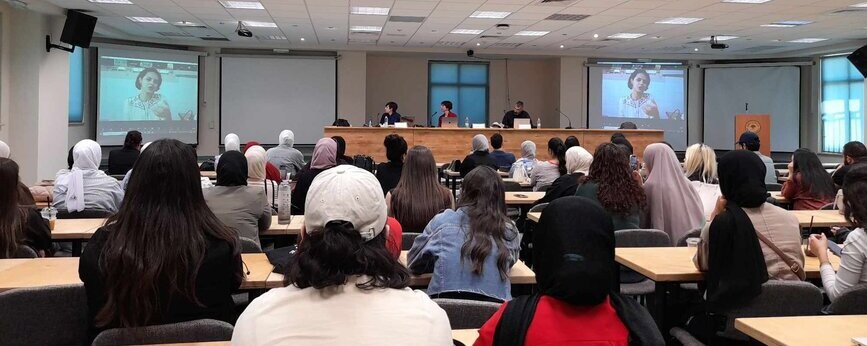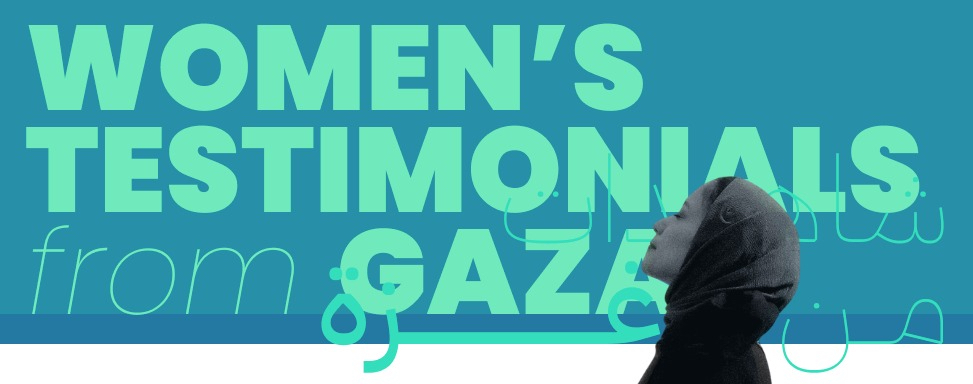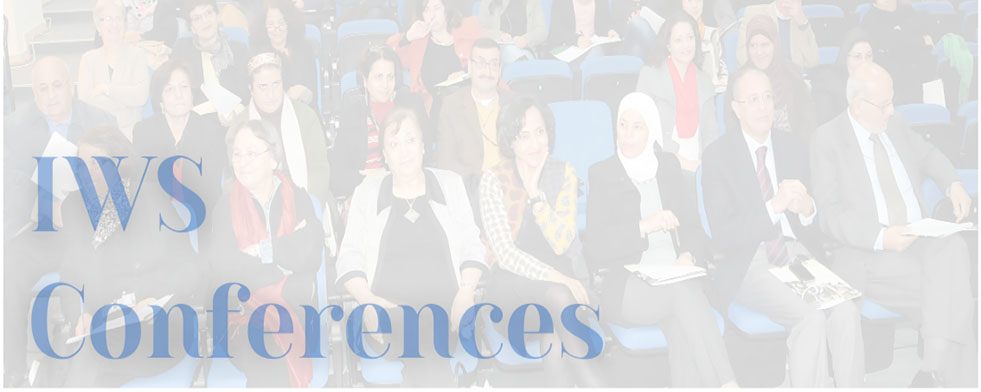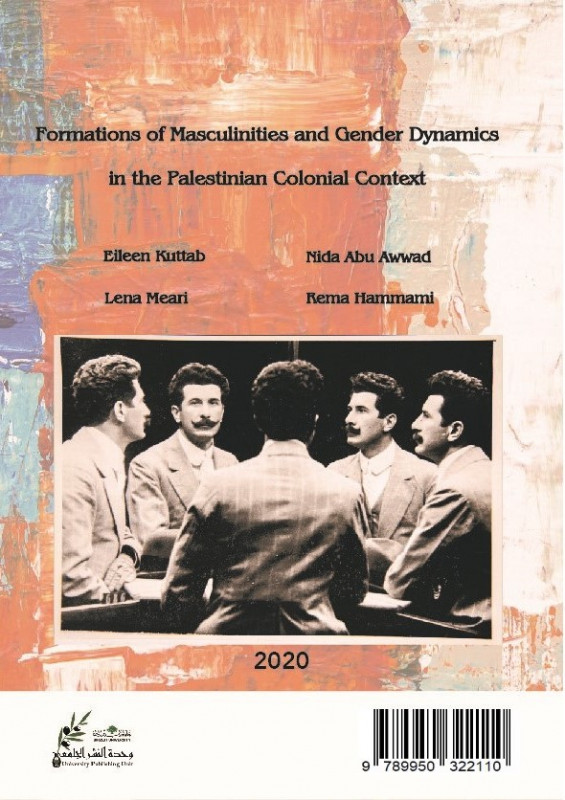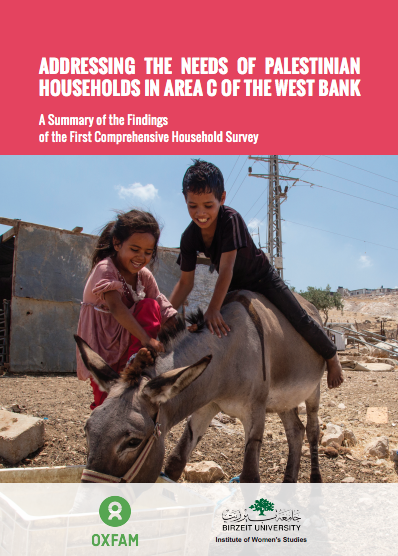On 8 May 2024, as part of the work of collecting and disseminating women's testimonials from Gaza, the Institute for Women's Studies hosted the Gazan writer Bessan Nateel, speaking live via Zoom from her displacement in Deir al-Balah.
Dr. Rania Jawad, Director of the Institute for Women's Studies, welcomed attendees and the writer who "recorded the experience of her grandmother's childhood during the Nakba, and today records the experiences of children during this genocidal violence." Beesan Nateel shared with the audience her project to document the testimonies of children since 7 October 2023 and their relationships with place, war, land and the sea. Dr. Jawad raised the question of how we can situate the testimonies "in terms of their production, circulation, their relationship to the children, and their significance as a form of knowledge production."
A short video produced by Nateel was screened that contained some of the children's testimonies during the war in Gaza. Dr. Sama Dawani, director of the MA program in Community Psychology, then opened a dialogue with Nateel on the context and necessity of compiling the testimonies and how the process of collecting them differs from that of the journalistic media in Gaza. She asked Nateel what she learned in the process of documentation. Nateel spoke of how the project began spontaneously while she was displaced from Gaza City to Deir al-Balah through her encounters with children in the shelters that instigated her desire to chronicle and record their experiences. She spoke about the circumstances and expressions of the children who were living during the genocidal war and longing for their former lives. Dr. Dawani highlighted the value of Nateel's project where she's living in the same war conditions as those she's documenting and how in her documentation Nateel's voice overlaps with the children's voices in the narration.
Dr. Said Shehada, trained in Clinical Psychology in the Department of Social and Behavioral Sciences, welcomed Nateel and noted that alongside the physical genocide, “there is an attempt at psychological annihilation that begins with attempts at erasing life or our pre-war selves. Under this annihilation, it is clear how important it is to compile these memories before we lose them.” He stated that Nateel's compilation, documentation, and narration of the testimonies was an intervention to retrieve the selves that were being attacked and erased.
The dialogue was opened to the audience and revolved around how we as adults can learn from the children's testimonies and experiences, the need to consider terms of psychology that are used such as 'trauma' in this context, as well as forms of social solidarity in these moments, and whether this project could be transformed into a form of collective action.

